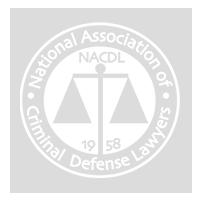Accessing a Shared Residence in South Carolina
A typical South Carolina CDV bond restriction will be that the defendant has no contact with the alleged victim. If the defendant and the alleged victim share a residence this case create special difficulties. There are no exceptions in the standard no contact bond restriction allowing even incidental contact with the alleged victim to gain access to your personal belongings or clothes.
In some parts of South Carolina the Court allows defendants to use the services of local law enforcement to accompany them back to a shared residence to retrieve their property. In other parts of the State this will still be considered a violation of the no contact restriction if there is any contact with the alleged victim.
One of the first topics we address with CDV clients is how a no contact bond restriction is going to impact their rights to a shared residence.
Rented Property & CDV Restrictions
If the home is rented by the defendant and the alleged victim refuses to vacate or pay rent the defendant must continue to pay rent or risk being in default of their lease. The only solution in this case may be for the defendant to seek a legal eviction of the alleged victim. This can complicate the resolution of a CDV case. Because the eviction process will involve some contact with the alleged victim, even just in Court, it is important that the services of an attorney be used.
Mortgages & CDV Restrictions
If the home is in the process of being purchased through mortgage payments the defendant must continue to make the payments or run the risk of being foreclosed on. There are no defenses to a foreclosure proceeding if you have lost possession, even temporarily, due to being arrested for CDV. If the alleged victim refuses to vacate the property it may be necessary to seek a legal eviction. Because this will involve some contact with the alleged victim, it is important that the services of an attorney be used.
Petitioning the Court for Relief
Depending on the circumstances it may be possible to file a motion with the Court and seek modification of the bond restrictions to allow for access to a shared residence. Whether or not this is likely to be granted will depend on the preferences of your local Court along with the allegations in the particular case.
The difficulties described herein apply to all levels of criminal domestic violence and are routine for those arrested for CDV. To learn more about your rights after being charged with any South Carolina CDV Offense contact the Law Office of James R. Snell, Jr., LLC, at (803) 359-3301. There are no fees to meet with an attorney in our Lexington office about your case.






